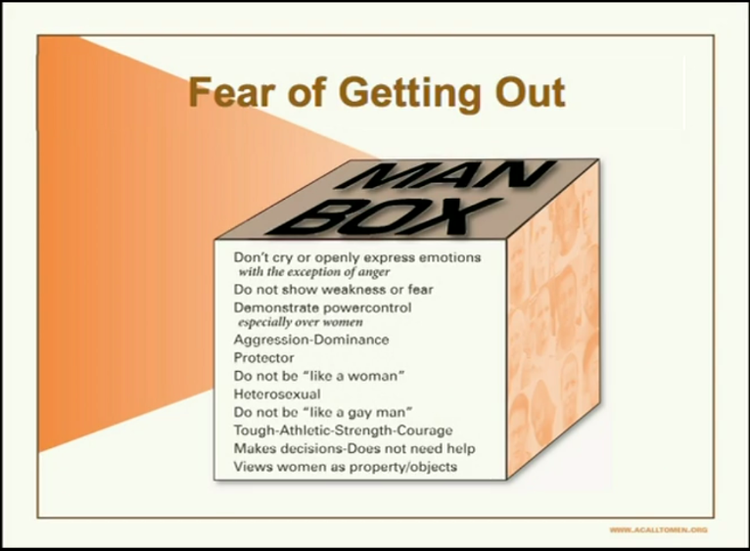What Kind Of Man Do You Want For Your Child?
Practicing psychotherapy means that I am in a very privileged position of having a front line seat, for the want of a better expression, into someones personal life, that is sometimes so personal I may be the only one with whom it has been shared.
Whilst many of my blogs are for women or are indeed unisex, I've’ve been thinking about men recently, and the men of our future; boys and young men. My thoughts initially began in this context whilst at a conference in London about teen violence within relationships and how our boys and young men are socialised and ‘expected’ to be; Tony Porter describes this as a Man Box.
How familiar are these phrases and words?
“Man-Up” “You Play Like A Girl” “Toughen Up” “Strong” “Fearless” “Sissy” “Gay” “Mummy’s Boy” “Wuss” “Stud” “Boys Don’t Cry” “Get Over It” “Do It Yourself”
Not always, but often, our boys are encouraged to be tough, dominating, sporty, strong, and courageous, to feel no pain or fear and are excused for being angry. Why is this?
I haven’t got that answer for you, nor do I wish to go into the history of men and women and why they are different; what I want to invite you to do is think about the here-and-now and the value in the words and statements above.
How do we expect men to be able to deal with emotional difficulties when they are not meant to feel, when they can’t ask for help or when they’re not allowed to be fearful? What behaviours do we seriously expect in exchange for these thwarted processes; anger, self loathing and violence are often secondary feelings and behaviours and though I am coming from an empathetic position here, thwarted processes do not excuse harmful outcomes.
I mentioned Tony Porter above, I watched his talk on TED and he said how he would instinctively pick up his little girl if she was crying, he would wipe her tears, ignore her snot that was covering his sleeve and he would tell her everything she needed to feel OK yet for his son; he found himself telling him to stop whining, he would send him to his room and say things like “talk to me when you can talk to me like a man”.
With my male clients, and to be fair, then men in my family, I often see the incongruence of their emotions – they can be talking about something that I am finding very emotional, to the point where my skin is covered in goose-bumps, and while their face stays strong and they may laugh in an attempt to convey the “shit happens” philosophy, there are subtleties that give a strong message; that they are hurting, that they feel misunderstood, that they feel pain, that they're sad - and it is me, from my front row seat, that encourages the primary feelings described, to be explored.
A client’s relationship with their therapist can be so potent if they find the right therapist for them, I work with clients to deconstruct and re-define what it means to be a man, to recognise the emotional absences that they have suffered during the years where their character was being built and to give permissions and re-assurance of what they are describing to me, as the ways they want to be and the ways they want to be able to experience and express themselves.
What kind of man would you want your child to be with? Liberation of a man is entwined with the liberation of women.
You can view Tony Porter's talk here.

